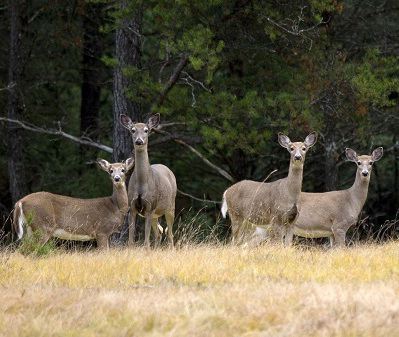Michigan Politcians Know It All
By Glen Wunderlich
Hunters have dutifully relied upon the advice of wildlife biologists, when it came to the effects of their studies and knowledge on all matters flora and fauna. We listened to them when it came to managing our wolf population and we listened to them when it came to hunting mourning doves; we put emotion aside and stood by science. However, a group of short-sighted politicians – largely Republicans – have announced, by virtue of their vote for baiting deer that they know better.
Michigan House bill 4687 would scrap years of Chronic Wasting Disease (CWD) studies and would allow up to five gallons of feed at each bait site. Additionally, any antler-point restrictions (APRs) on bucks would be lifted – even in areas where hunters have approved APRs. Fortunately, deer season is upon us, and since the Michigan Senate has yet to act on the measure, there’s no time to rush this through in time to affect the ban on baiting currently in place.
It’s no secret that the number of hunters continues on a downward slide that began years ago and that some of those on the sidelines would return if baiting were allowed. Just what type of impact would be felt relative to hunting dollars is unknown but oddly enough in September a representative of Lucky Buck Mineral and the M-65 Bait Shop testified in support of lifting the ban. Hmmm.
On the side of science, was Amy Trotter, executive director of the Michigan United Conservation Club, who stated the science is clear — that banning the feeding and baiting of deer will help stem the spread of chronic wasting disease, an ailment that has decimated Michigan’s deer herd and is always fatal.
Ironically, Proposal G, which was passed into legislation 23 years ago by the citizens of Michigan, gave the NRC the authority to regulate the manner and method of take for game — this includes authority over the baiting and feeding of deer and elk.
The fiscal impact of House Bill 4687 on the Department of Natural Resources (DNR) is uncertain at present. Current penalties for violating a ban on baiting may include jail time, $50 to $1,000 in fines, or hunting license revocation. It is unclear whether the explicit allowance of deer or elk baiting would affect departmental revenues, as the number of forgone baiting violations is yet to be determined.
It is equally unclear whether this allowance would have an impact on enforcement costs for department personnel. The sale of hunting and fishing licenses generated a combined $60.5 million in revenue in FY 2017-18. This revenue is deposited to the Game and Fish Protection Fund, which primarily supports wildlife and fisheries programs as well as DNR law enforcement. The bill is unlikely to affect local government costs or revenues.
State Rep. Beau LaFave, R-Iron Mountain, said the commission is unelected and shouldn’t be making these types of decisions.
“At what point did this Natural Resources Commission become lawmakers? I never got to vote for them,” he said. “They banned baiting without a single hearing in the Upper Peninsula. This show should be over and we should end this baiting ban once and for all.” My question to Mr. Beau LaFave is this: When did you get your credentials to become a wildlife biologist?
Nobody ever said that a baiting ban would end CWD fatalities in our deer herd. However, there is no plausible rationale to suddenly go against science and exacerbate the plight of our wildlife. All we have to do is follow the money and resist the temptation to take the bait.





